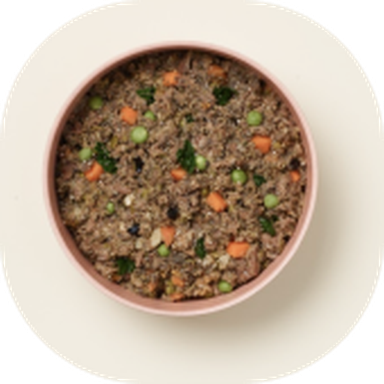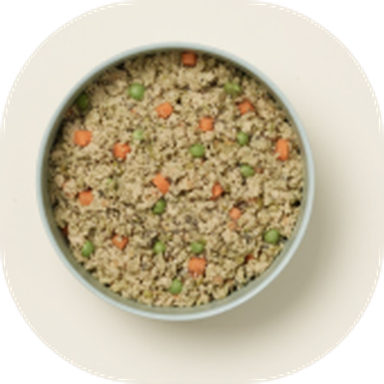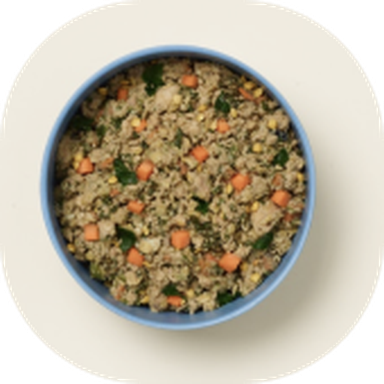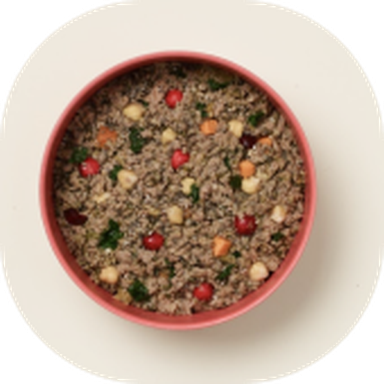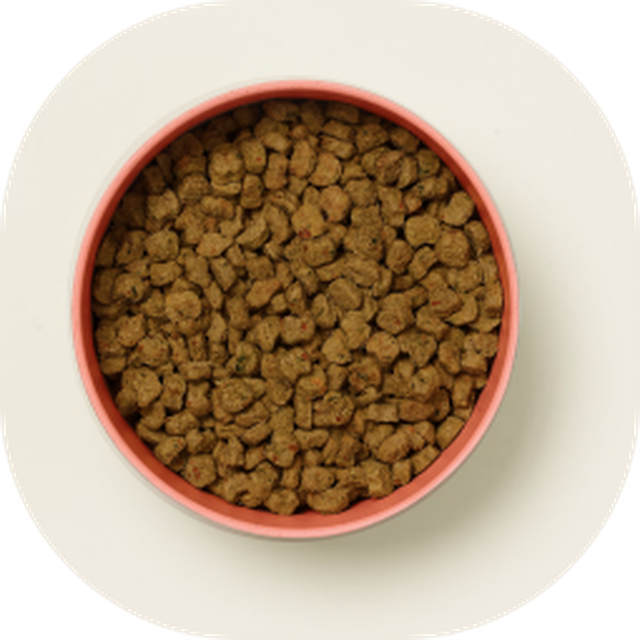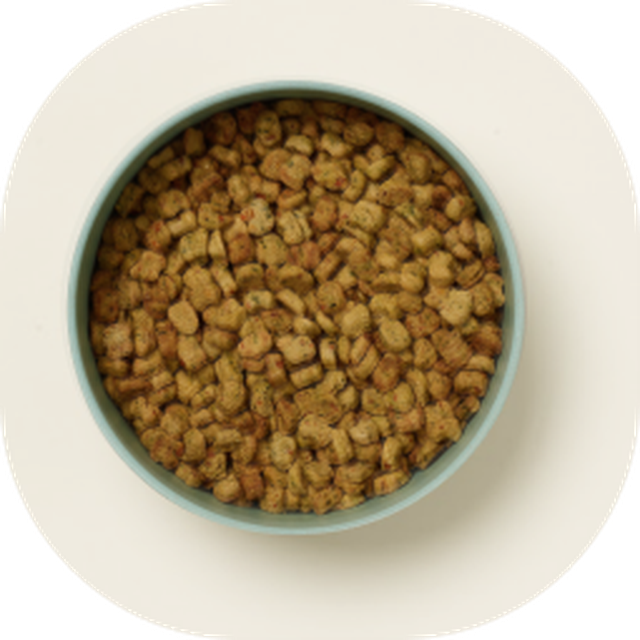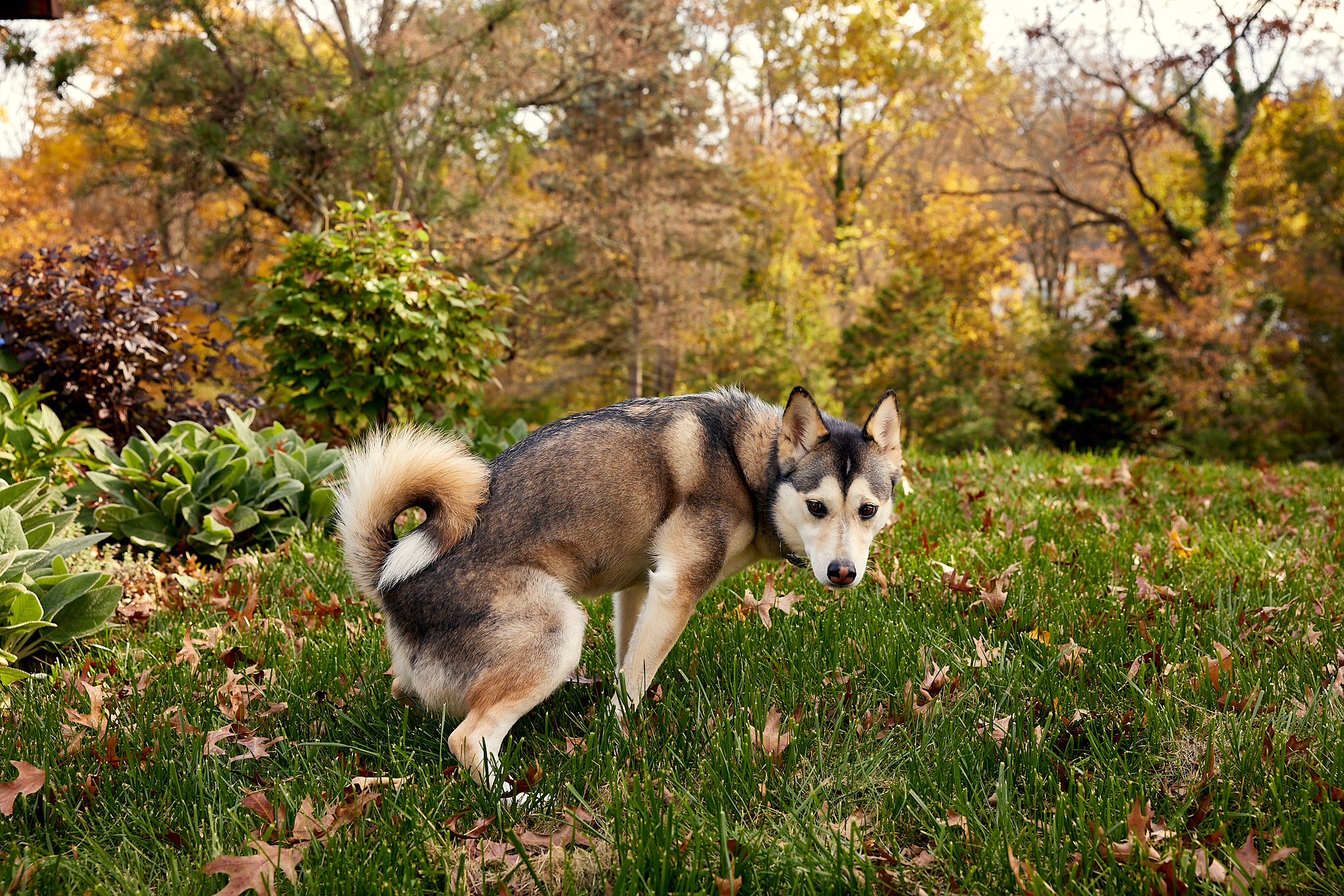Hey Ollie blog readers! We’re offering you an exclusive 60% OFF your starter box! Try now!
While the scent of coconut oil may be enough to trigger thoughts of warm, tropical breezes this versatile fat source may have many health benefits. There is evidence that it is beneficial for both humans and dogs. If you’ve ever enjoyed using coconut oil in the kitchen or for your skin you may have wondered if it is okay to share with your pup. We put together everything you’ll want to know before you share.
Is coconut oil good for dogs?
Coconut oil is made from coconut meat that is harvested from the coconut palm. It consists of at least 90% saturated fats, most of which are Medium Chain Triglycerides (MCTs).
If you subscribe to the theory that there are good fats and bad fats, MCTs are considered “good” fat and can provide several benefits, including being a source of fuel and energy.
Components of MCTs:
-
- Lauric acid – which is antibacterial, anti-fungal and anti-viral
- Capric acid and caprylic acid – which are known for their anti-fungal
effects
- Polyunsaturated and monounsaturated fatty acids
According to Dr. Bruce Fife, certified nutritionist and naturopathic doctor and president of the Coconut Research Center, “coconut oil gently elevates the metabolism, provides a higher level of energy and vitality, protects you from illness, and speeds healing. As a bonus, coconut oil improves any dog’s skin and coat, improves digestion, and reduces allergic reactions.”
Is coconut oil good for dog’s skin?
Yes, coconut oil can be great for your pup’s skin. When used topically coconut oil has many benefits for your dog’s skin as well as their coats. These include:
- Clears up skin conditions including dermatitis and eczema
- Promotes the healing of wounds
- Moisturizes cracked paw pads and calluses
- Prevents fleas, ticks, and mites
You don’t want to just slather it on as your home might end up a greasy mess! If your pet loves coconut oil (and some dogs do) they might be hard to coat as they are going to try to lick it off!
You can rub the coconut oil into your pet’s skin and let it stay for about 5 minutes. After that start with a light rinse. If your pet still feels greasy you can shampoo to get the excess out. Think of this like using a leave-in conditioner in your hair.
You may want to put your dog in the tub or on a towel so they don’t make a mess. Oil stains can be challenging to clean up. You don’t want coconut oil on your bed (or theirs) or even the couch.
For dogs with skin issues ask your vet how often you should apply coconut oil. You may even be able to just do some spot treatments to avoid a big mess.
If you’re just using it for a shiny coat and general skin health, treating your pet’s skin with coconut oil should be sufficient.
Is coconut oil good for dogs to eat?
In moderation, feeding your dog coconut oil can be beneficial. While it is high in fat and as with any other high fat food consumed in large quantities it can cause weight gain. Coconut oil also has some benefits when fed to your dog including:
- Improved digestion
- Improved absorption of key nutrients
- Speeds healing of digestive disorders including ulcerative colitis
- Kills parasites that may be lingering in your dog’s gut
- Breath aid: Helps reduce stinky breath
- Regulates insulin and can help with the control or prevention of diabetes
- Reduces the risk of some cancers
- Helps with weight management and increased energy
While coconut oil can help with digestive issues, if a dog is given too much, it can cause diarrhea. Dogs who are prone to pancreatitis should avoid coconut oil altogether. The fatty acids in coconut oil can aggravate and maybe even cause pancreatitis in some dogs — so if you have concerns check in with your vet or skip it altogether.
Refined Vs. Unrefined Coconut Oil
When you go to the grocery store to purchase coconut oil for your pup, you might see labels including organic,extra virgin, refined and unrefined. Does it matter which one you purchase for your pup? Virgin coconut oil is best as it will be the least processed option.
Both refined and unrefined coconut oil have identical nutrient profiles. The difference is that refined coconut oil will generally have a less intense scent and a higher smoke point due to the processing it goes through. This is more important if you are using coconut oil to cook with.
For your pup, you’re better off with the unrefined stuff as it is less processed. That said, if your dog does eat refined coconut oil it will not do any harm.
How much coconut oil should be used and when?
In order to get the maximum benefits of coconut oil you might be wondering how much to offer your pet and when. While the information below is intended as a general guideline, there are many factors to consider when deciding how much coconut oil is appropriate for your dog.
You’ll want to feed virgin coconut oil for maximum benefit. There are some coconut oil products designed for your pet, but regular coconut oil you buy at the grocery store is just fine, and generally more cost-effective.
As with any new food, make sure to introduce it to your dog slowly and gradually. Watch for adverse reactions or allergies. If your pet has a parasite or digestive issue be sure to be extra diligent and discuss any concerns with your dog’s vet.
Coconut oil is safe to feed and if your dog accidentally eats too much you’re likely only going to see some gastric upset in the form of loose oily stools.
To start your dog off right you want to work up to 1 teaspoon per 10 pounds of body weight. For a 90 pound dog, this means you’ll be feeding 9 teaspoons per day. Some dogs like plain coconut oil right off the spoon while others may prefer it mixed into their food.
If you are concerned about stomach upset, mixing the oil into your dog’s food will minimize the risk. Do not give your dog the full amount the very first time you feed coconut oil. Work up to the desired dosage slowly, over a period of a few weeks to avoid upsetting your pet’s stomach.
For a full therapeutic benefit, your pet might need more than the standard recommended serving of coconut oil. You may wish to consult a holistic vet to discuss the most effective dosage for your dog.
One important note when feeding coconut oil – you’ll want to alternate coconut with some Omega-3s as your pet will need the essential fatty acids in the Omega-3s as well. You may want to consult your dog’s doctor about the right balance of fats and oils to make sure your dog is getting optimal nutrition.
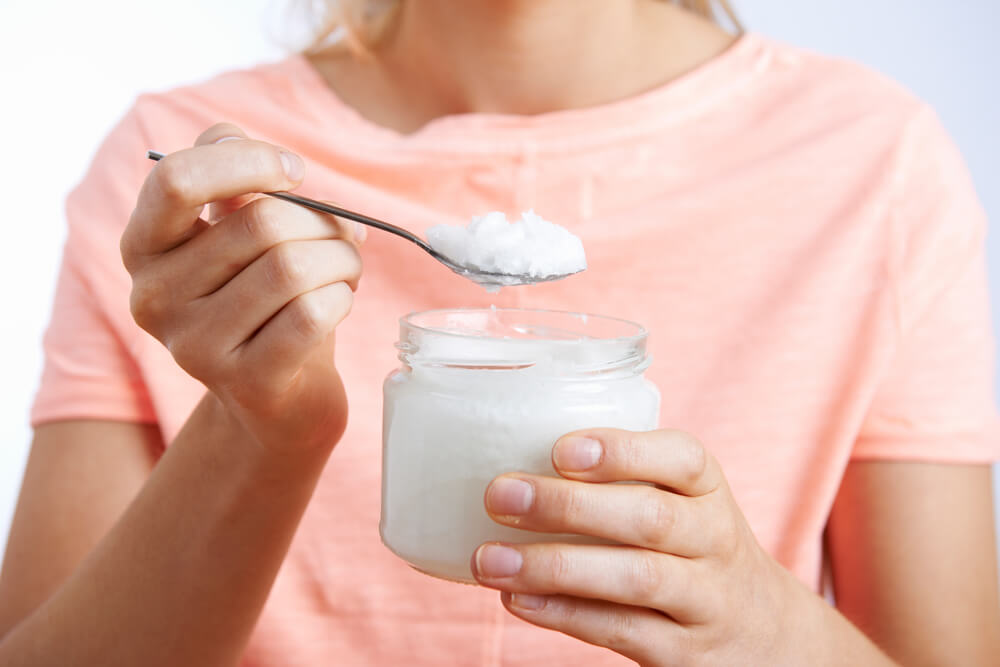
Using coconut oil for your dog can help you maintain his health, but make sure you are still getting regular wellness checkups and medical care for underlying health issues to ensure your pet lives a long and healthy life.
The Ollie blog is devoted to helping pet parents lead healthier lives with their pups. If you want to learn more about our fresh, human-grade food, check out MyOllie.com.
Tagged As:

The nutrition your dog needs,
the food they want.

Enjoying our articles? Subscribe our Newsletters and get new articles directly to your inbox
You might also like
26 April 2024
4 MINS READ
How Often Should I Take My Dog To The Vet?
Routine veterinary care is important for your dog’s overall health—but how often should your pup visit the vet? We answer this question and outline common health signs that warrant a veterinary…
by Ollie Pets
28 February 2024
6 MINS READ
Why Do Dogs Eat Poop & How to Stop It
Does your dog partake in poop? We get to the bottom of this unusual behavior, including its medical and behavioral causes, and how to address it.
by Ollie Pets
30 August 2023
6 MINS READ
Dog Diarrhea: How to Prevent and Resolve
Dog diarrhea is distressing for pups and their owners. Understanding common diarrhea causes can help you respond quickly and effectively to your pup’s intestinal issues.
